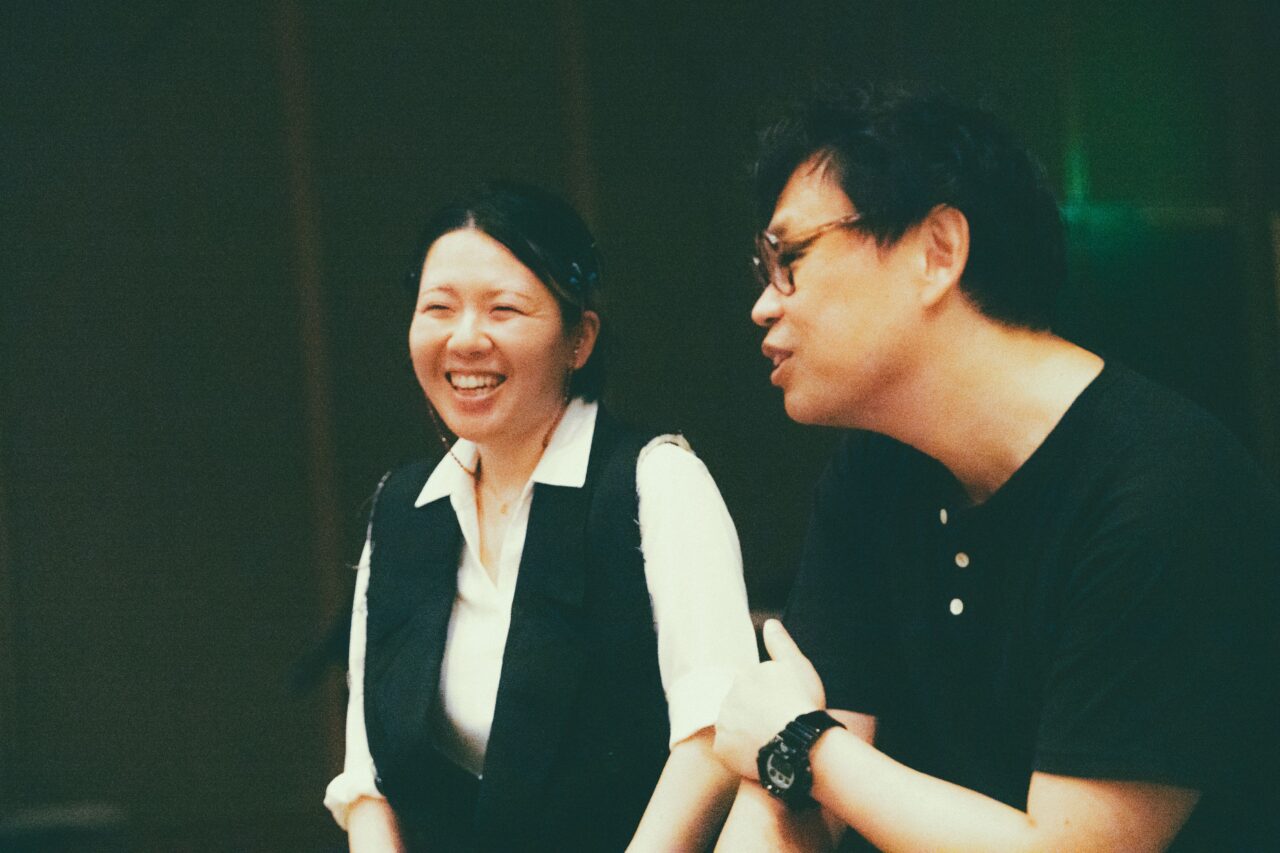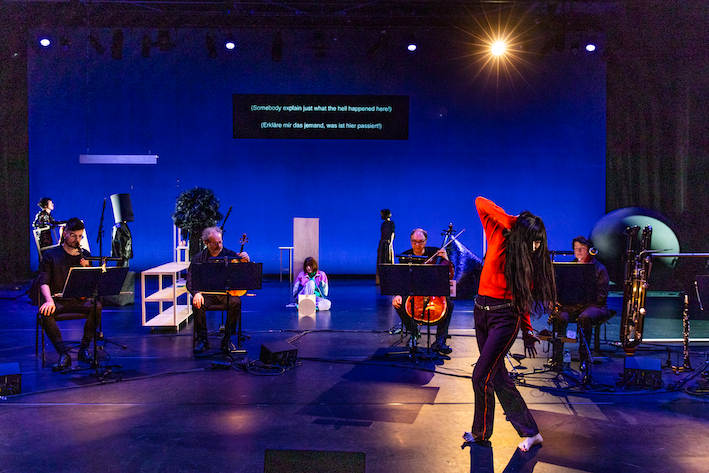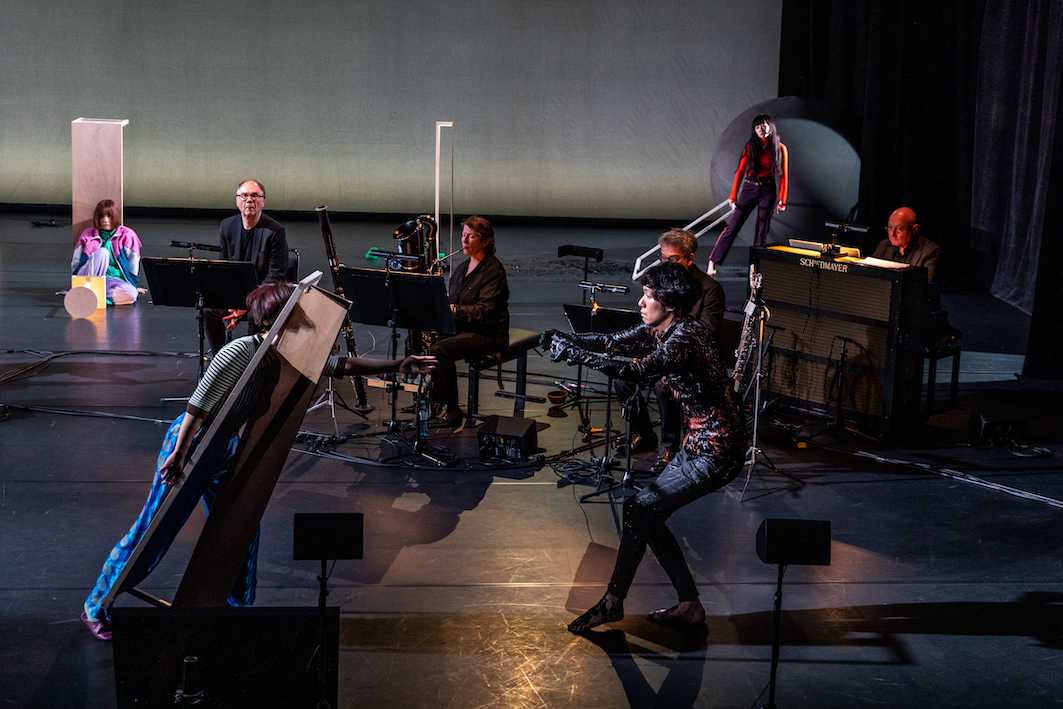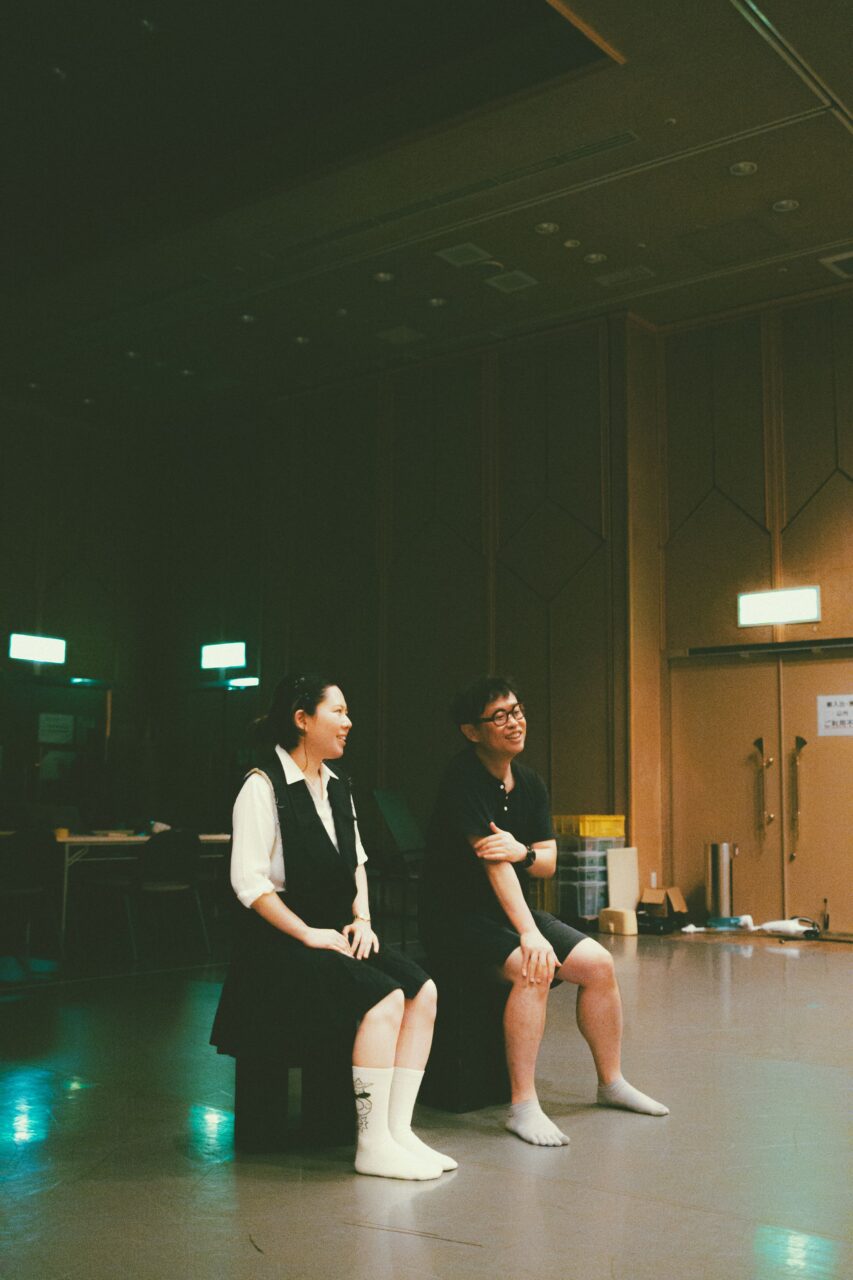INDEX
Theater That Features Enjoyable Music, Not Music That Supports Theater
This time, from September 20 to September 29, the re-staging of Metamorphosis of a Living Room will take place at the Theater East in Tokyo. Kaho, you actually saw the premiere in Hannover, Germany. What were your impressions?
NAKAMURA: First of all, I was amazed at how beautiful the string sounds were in Europe. In Japan, the high humidity affects the resonance of string instruments significantly. In Germany, the air is drier, which allows the instruments to really sing… The composer is Japanese, right?
Okada: Yes, the composer is Dai Fujikura. He lives in London, though.
Nakamura: The approach to the music was something I had never heard in Japan, and it was shocking to see the theater layered on top of the string sounds. Watching it with Germans was interesting; it felt almost like a dream. Since the days are long, it was still bright outside after the performance. We ended up eating ramen with some Germans afterward, and they kept asking me to explain Okada’s play. I thought to myself, “It’s already difficult to explain even in Japanese,” but I went ahead and talked about it [laughs].

While this production is billed as a musical play, the way music and theater coexist is quite unique, isn’t it? Both elements exist in an equal and parallel manner. The presence of music composed by Dai Fujikura, who has his own distinct “voice” (not in the literal sense), is significant.
Metamorphosis of a Living Room is more than just a musical play with that title; it’s something defined by the tension between music and theater. However, expressing it this way can be difficult to convey. It might not create a clear image for everyone. So reluctantly, we accept being labeled as a musical play. This kind of thing takes time—perhaps decades. Chelfitsch (and surely Dai Fujikura as well) is willing to wait. We have no choice but to wait and keep working steadily. The Tokyo performances are part of that steady effort. By allowing the audience to experience it, we hope to transform the world.
Toshiki Okada (theater playwright, novelist, Chelfitsch founder) comments on the Tokyo performance (written in August 2024)
Okada: Yes, Dai Fujikura resonates with this idea too, but fundamentally, music is not always necessary for theater to exist. For me, that’s a crucial point. It’s not that the production can’t exist without music; rather, it’s not a stance of “we need music to help us.”


Okada: And I believe that if there is theater that is not dependent on music, it won’t be theater without music; instead, it will be theater that features enjoyable music. When I consider what kind of musicians would make that interesting, I think it’s essential for them to have a unique voice, just as you mentioned. I want not only musicians but also costume designers and lighting designers to have their own distinct voices. This applies to everyone involved in the collaboration.
Normally, if someone says, “Okay, we’ll just remove the music from this play,” most of the time, the production can still stand on its own, right?
Okada: Yes, that’s right. It works.
But Metamorphosis of a Living Room wouldn’t work that way.
Okada: Exactly. If you took away the music composed by Fujikura, it wouldn’t be the same work anymore. The music and the theater exist in a kind of tension, in juxtaposition with each other, so I don’t fully agree with the label of “musical play.” We just call it that for convenience and clarity.
In a sense, something is happening on stage, and the audience is watching, so it encompasses both theater and music, but I think the way it’s perceived is entirely different from other productions. For example, when I listen to music, I don’t think about anything. If I start thinking about something, I can’t enjoy the music. However, when I watch theater, I’m thinking deeply.



























